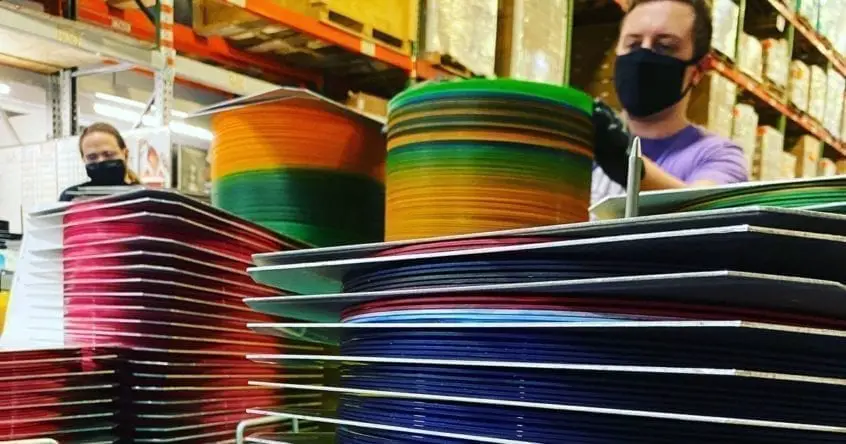The vinyl record industry, and the wider music business, is a passionate industry led by devoted people. It’s a labor of love while at the same time providing a genuinely fulfilling livelihood to thousands across the globe. So what happens when an unexpected and unprecedented global crisis hits the industry you love?
To learn more about the impact of COVID19 on the vinyl record industry, we spoke to a plethora of pros from across multiple disciplines.
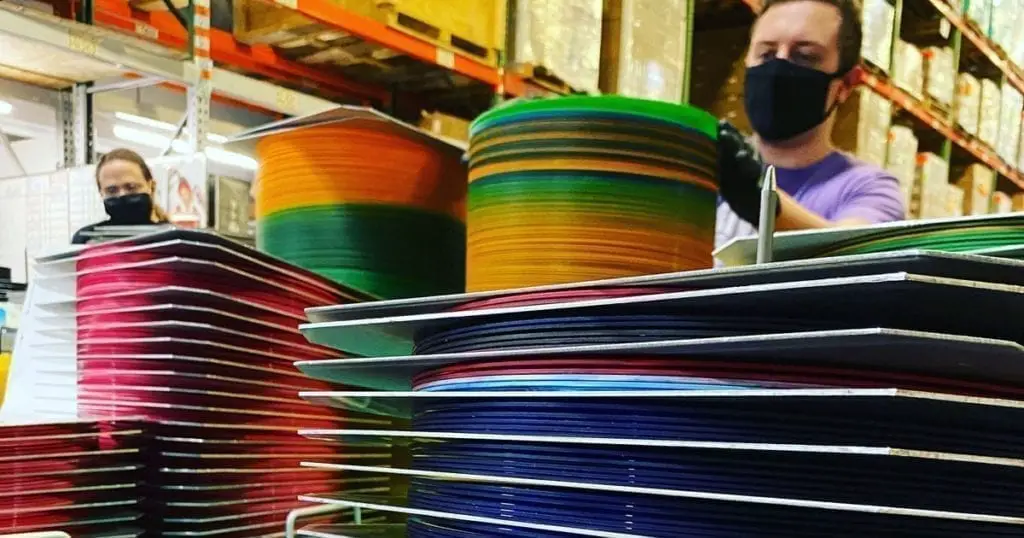
Depending on how much face-to-face contact is involved, the impact of COVID differs significantly. One person whose job very much depends on relationship building and in-person meetings is Graham Jones, a UK-based music distribution veteran, and the author behind Last Shop Standing and The Vinyl Revival. Graham’s entire career has centered around visiting physical record stores, so the impact on his daily work is far-reaching.
“COVID has profoundly affected my work in many ways,” states Graham. “My day job is traveling around the UK selling vinyl and CDs to the independent record shops on behalf of Proper Music Distribution.
When COVID struck, the shops closed, so I was furloughed, spending three months off.
“My job has changed completely. Instead of visiting the shops, I am selling via Zoom, Skype, email, or phone. My latest book, ‘The Vinyl Revival and the Shops That Made it Happen’, was turned into a film. We had screenings lined up throughout the summer, but sadly all of these were canceled.”

One of Graham’s customers is Roy Gregory, the Owner of Clocktower Music in Bridport, Dorset. As a physical music store owner, Roy was hit hard by the lockdown/quarantine measures and had to make some quick and difficult changes to survive. “Being a destination shop and not an online business, it was a very sudden stop to entire sales revenue,” Roy exclaims. “Initially, we closed like all other retail stores and then took the opportunity to move online from April through July. The staff were furloughed, so I ran it on my own. The results were 46% of our usual business. However, the number of hours required to create a new online store while still trying to run the business, redesign the shop layout, and plan for an unknown future were extremely taxing.”
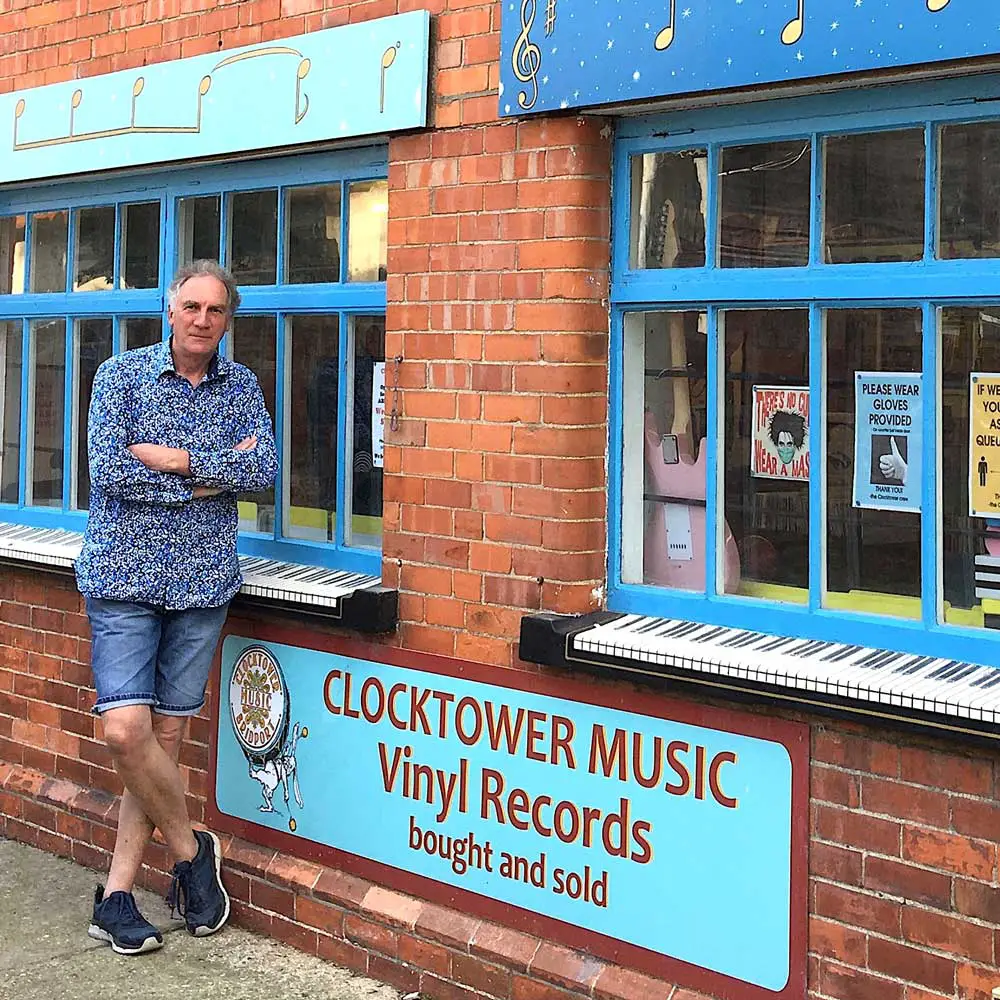
Record store closures were the most visible impact of COVID to the general public; after all, these are the customer-focused hubs of our industry. I, for one, have vivid memories of walking through my own town during the initial shut down; the atmosphere was eerie as the entire world stopped—practically overnight.
Of course, the wider impact goes across the entire supply chain, including the manufacturing process and beyond. Like the retail stores, Cleveland-based pressing plant Gotta Groove Records was forced to close for a period, resulting in significant business pressure. Like most businesses, they had to make quick and critical changes. What surprised them, however, is how COVID affected customer demand. Gotta Groove VP of Sales and Marketing, Matt Earley explains.
“We were forced to close for about six weeks back in March, due to a state-level closure mandate. Outside of a few activities, we were not able to conduct any work during that time period – of primary impact, no pressing of records.
“We were able to re-open in early May. Most of the first month was spent digging out of the backlog of orders. Thanks to the hard efforts and commitments of our employees, we were able to produce these orders within four to six weeks. Our customer base was very patient through this catch-up period.
“Something that I could not have predicted back in March was that by June, our customer base—as well as record stores—were experiencing significant increases in consumer demand for vinyl. This trend has continued, despite a lack of live performances that would historically generate a significant amount of the overall demand for records.”
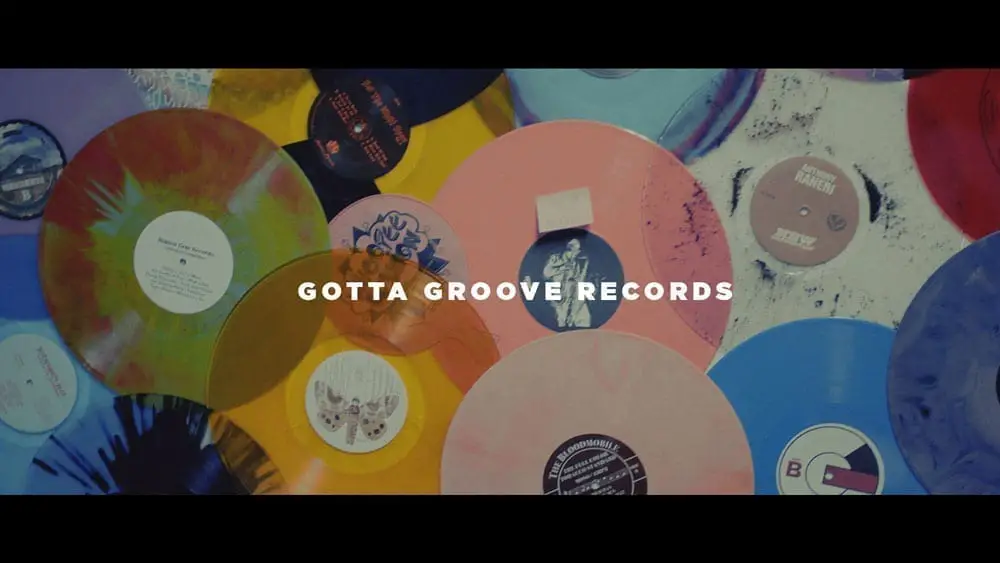
Any news of growth is music to my ears, given the overarching impact of government restrictions that undoubtedly placed a major strain on the economy. That said, in the case of vinyl records, it’s arguably less surprising than you might think. The record industry is remarkably resilient; just look at how the industry reacted with sharp precision in the wake of February’s disastrous Apollo Masters fire. Arguably, consumers will always want music, and with more people working from home, or perhaps just commuting less, there is more time to make way for an engaging medium like vinyl.
Responding to this demand is no small task, though, and Matt was quick to thank his staff for their adaption and hard work.
“To date, thankfully, we have been able to maintain full operations without our employees contracting Covid – thanks to their careful and steadfast adherence to our social distancing, mask-wearing, and cleaning requirements at work. Really, without the folks who work here doing what they do both at home and at work, we would never be able to continue the operations we do today.
“With social distancing, it has significantly increased the amount of space necessary for assembly and packing. Those are the areas most affected because they are the nearly 100% human-controlled steps of making records. Pressing machines do not need social distancing, so they can keep cranking out records. Getting finished goods out the door takes more space than in the past. (and the building did not magically double in size).”
…Everyone expected the vinyl market to contract by at least 25%. But the unimaginable happened instead – we saw a growth of 12% in the first half of 2020…
Guenter Loibl – Vinyl Alliance
A Resilient Vinyl Record Industry
Stories of a vinyl resurgence in the midst of COVID are echoed by many other pressing plants, including Hand Drawn Pressing in Dallas, Texas. “Initially, ten to twelve weeks of the shutdown were extremely rough on our business,” says CEO Dustin Blocker. “Essentially, our business dropped by 90% throughout that period. However, since late-July, sales have increased dramatically for our plant, and we are currently at an all-time sales high with projects currently booked into March 2021.”
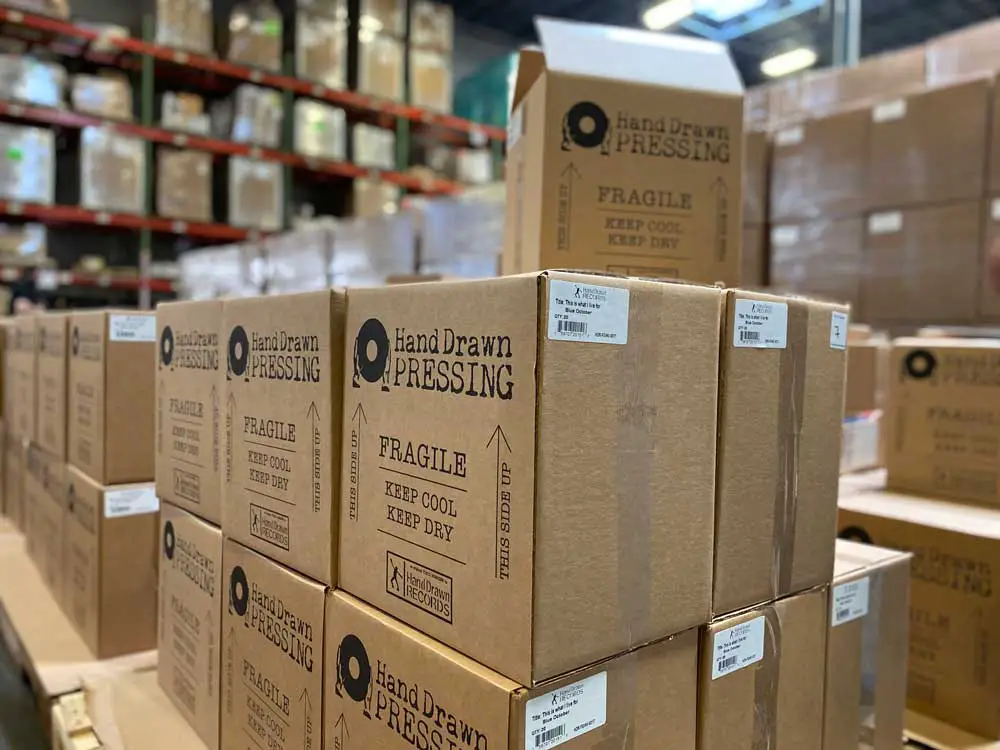
Stories of a rebound after the initial shutdown is excellent news, and it’s not just the records themselves that have seen a surprising boost in some areas. Guenter Loibl is President of the Vinyl Alliance and was able to shed some light on further silver linings resulting from COVID.
“At the beginning of the pandemic, a lot of record-related businesses experienced a rise in demand for their products. Turntables and cartridges sold better than expected, and a lot of the business moved to online-stores. But the most unexpected thing was the record sales numbers themselves. After Amazon stopped selling vinyl for six weeks, the cancellation of Record Store Day, record-store closures, and music labels postponing new releases, everyone expected the vinyl market to contract by at least 25%. But the unimaginable happened instead – we saw a growth of 12% in the first half of 2020 in the US! This is a powerful statement from consumers regarding vinyl.”
It certainly is, and it’s a testament to the importance of music in our society. Consumers are determined to continue enjoying music, and the music industry is committed to delivering product. Arguably, with the technology at hand today, it is still possible to produce professional-quality records with minimal human contact. And yes, there is magic from live performance and the interaction between musicians that the internet can never replace, but needs must.
Barry Grint, Director of Alchemy Mastering at London’s Air Studios has witnessed an impressive resilience in response to COVID, including how productions have managed to continue. “Our business has been surprisingly resilient,” claims Barry. “There was a small lull just at the start, but the labels have adapted very quickly. Mastering engineers are mainly locked away in their rooms, so social distancing isn’t too much of a problem.
“I’m very impressed with the way everyone has adapted and how the IT infrastructure has accommodated everyone suddenly working from home. I think fans enjoy the more intimate performances and videos artists are making at home. Recording and mixing engineers have been using technology to enable remote recording and mixing sessions.
I would imagine that maintaining a covid-safe environment in the record factories is difficult.”
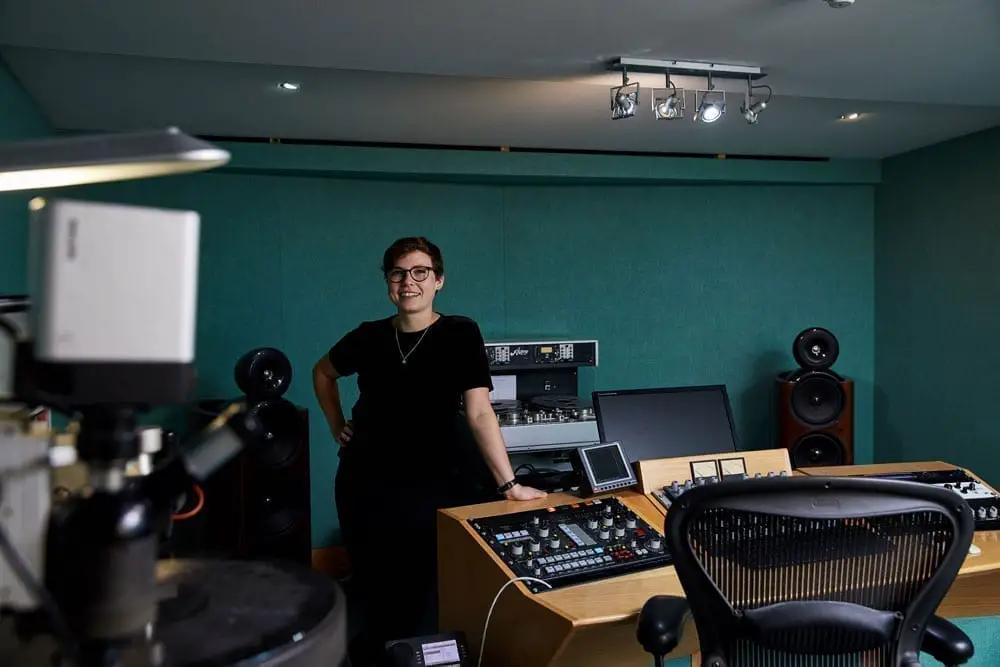
Cicely Balston is a Mastering Engineer at Air Studios operating with Barry, and has increasingly worked on many home studio recorded projects during this time. “There was a small lull in Spring while everyone worked out what the plan was, but since then, all the labels seem to have organized working from home really well. The pandemic has encouraged some artists towards making music at home, and I’ve worked on a few ‘lockdown’ projects.”
Music and the arts are tremendously resilient. Through each of the economic downturns I’ve witnessed as an adult, the entertainment industry never falls as far as the economy. Arts prevail – there is a very strong desire globally to make that happen.
Scott Hull – Masterdisk
Perhaps another silver lining will be the artistic output that we see once this is all over. Some of the most creative albums in history were born out of struggle, and although I don’t wish to make light of anyone’s suffering during what is undoubtedly a regrettable phase of human history, there is beauty in music that derives from shared human experiences. And since many reports suggest a boom in record production, we could be in for a real treat.
Scott Hull of Masterdisk shares a similar optimism that music will prevail. “Music and the arts are tremendously resilient. Through each of the economic downturns I’ve witnessed as an adult, the entertainment industry never falls as far as the economy. Arts prevail – there is a very strong desire globally to make that happen. I’m not overly pessimistic. But business and individual’s careers will have to pivot to adapt. And we always do just that. Think of the music industry; first, there’s the advent of recorded music, and then radio, followed by LPs and Digital. As a collective, the music industry has witnessed massive cultural changes, yet we still create music for audiences that are hungry for more.”
Silver Linings
Like most things that happen in life, there will be positive and negative change, but I wholeheartedly agree that music will prevail. The opportunity to make changes and reflect on how we operate is a natural reaction to such a sudden and dramatic change to everyday life. Some businesses will benefit from the changes they put in place, which was expressed by many of the people I spoke to. “There have been changes to how shops are now operating,” adds Graham Jones. “With shops forced to close, many looked at their business model and how they could improve it. It allowed them to develop their websites and, in some cases, eventually start a website. It is no coincidence that since re-opening, those with websites are thriving, and many without an online presence are having a tough time.”
Going back to Roy Gregory at Clocktower Music (just one example of an independent record store taking the opportunity to move online). The process of opening a new online business model was never going to be easy. There are valid concerns about the ability of smaller independent stores to compete with the big guys longer-term. “Moving online was difficult at first,” explains Roy. “It was a huge change, but as working from home for office staff became more organized, the system steadied.
“It did require more emails rather than telephone contact. The additional pressure came from customer emails and queries, which sometimes overwhelmed us, mainly because people expect a speedy answer when you’re online.
“Covid does appear to have increased the sale of vinyl as people used their lockdown time for a change of interests. However, I think the biggest potential danger is to smaller record shops. The power of larger organizations to leverage net sales—and the continued advance of Amazon—might make it more difficult for the smaller shops to compete, not only on price but also in consumer choice.
“Some shops might choose to specialize in specific genres and possibly reducing the number of units they buy, or perhaps only buy the stock they think will appeal to the majority of their customer base.”
At Sound Matters, we certainly witnessed growth in traffic over the initial lockdown/quarantine period, which backs up the claims of many people we spoke to for this feature. Staying within a niche market to survive the big guys’ buying power is a smart strategy that I think will serve small businesses well should they choose to pursue this strategy.
A Healthier Future
The changes put in place by business could well go beyond how we reach and engage with our customers from a commercial perspective. Matt Earley is hopeful and cautiously optimistic that this could lead to more conscientious health choices – not only for ourselves, but also in how we impact those around us. “This topic probably goes beyond the scope of your questions about the record industry,” Matt continues. “But I think many companies will continue to have more proactive employee-health measures in place. This is a net positive.”
The Importance of Live Music
The stories I’ve heard from across the vinyl record industry while writing this article are surprisingly positive, given the rocky road we’re navigating. It’s encouraging, to say the least. Sadly, though, the same cannot be said for the live sector, and as Cicely Balston rightly pointed out, it’s important not to separate the record industry and the live events sector during this time of crisis. “The live industry is facing an absolute crisis,” Cicely states with great concern. “It’s not just the venues but also the many freelance engineers, techs and tour managers, who, if they’re forced into other work, won’t be around to crew the gigs when they eventually do come back. That’s not specifically related to vinyl, but I think it would be wrong to separate the record industry from the live sector too much as they very much go hand-in-hand.”
“The live industry is decimated,” Barry Grint echos. Sound engineers, Lighting guys, roadies, hire companies, truck hire. It takes so many people to get a show on the road. Once this is over, we might not have enough survivors to support acts that want to tour.”
Cicely and Barry are absolutely right. I would urge you to check out the now global #WeMakeEvents campaign for more information on the crisis facing the live sector due to government lockdown measures.
The artists don’t get off scot-free here either. On this issue, Dustin Blocker is right to hint at the fact most artists earn their salt these days through touring. “Artists, both independent and major label are suffering from massive losses of income due to inabilities to tour. Music venues, management, and booking agencies are all in that same boat. So, needless to say, please support artists; buy more merch!”
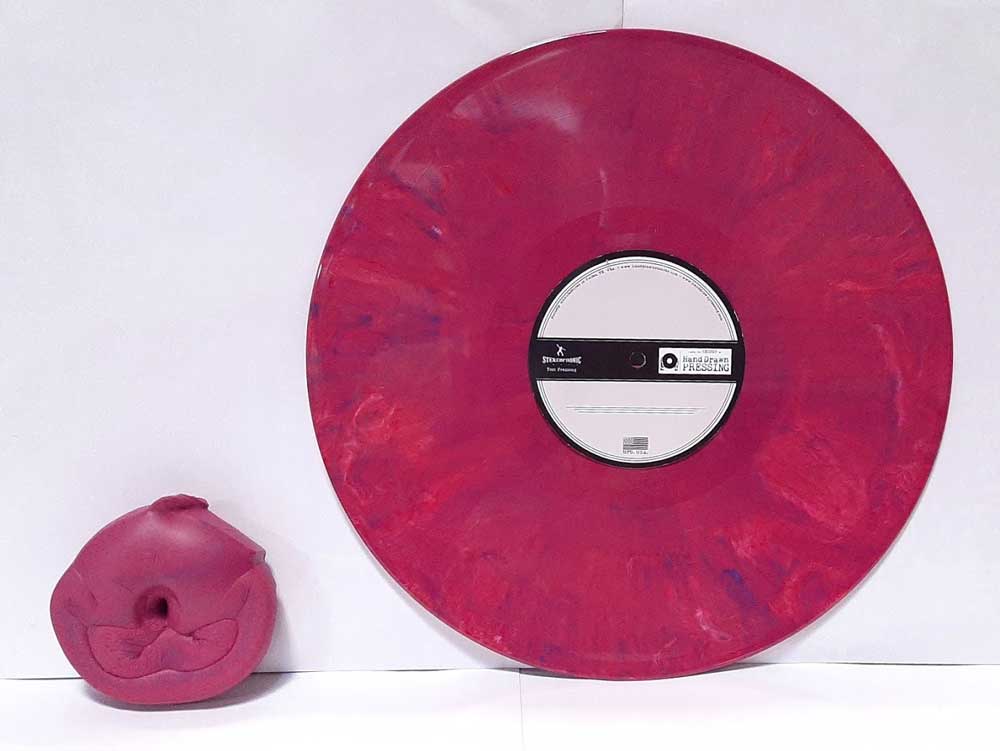
Getting Back into the Groove
Naturally, when I ended my interviews with each person I spoke to, the most common answer to the question “What are you most looking forward to post-COVID?” almost universally centered around live events and social gatherings.
It’s a social industry, be it gathering in a local record store, exchanging views at an industry event—such as Making Vinyl—or even sharing the magic of live events with fellow music fans. The record industry and wider music business thrives on human interaction.
It’s fair to suggest we’ve seen a further boost the vinyl record industry due to lockdown, and findings from the Vinyl Alliance appear to back this up, according to Guenter Loibl. “No new releases mean back-catalog sales. “But if you already own Dark Side of the Moon, you’re unlikely to purchase a second copy. So there must be a lot of new vinyl buyers out there. Another indicator is the sale of new turntables. They’ve reported a huge surge in demand for mid-range turntables ($200 – $500), which appears to indicate that new vinyl buyers are here to stay. Otherwise, they would have spent much less.”
My hope is that we’ll continue to see consumers interested in discovering a more engaging listening experience, of which vinyl delivers in bounds. But at the same time, it would be a shame if the problematic trading conditions resulted in a strong vinyl industry driven solely by huge conglomerates like Amazon. Record Store Day (RSD) has a part to play here, and the three RSD 2020 drops split across the year appear to have given some stores a real injection of energy at regular intervals.
The live events side can’t be ignored, as so much of what drives the ability to release vinyl records comes from the bread and butter of concert touring. The story is yet to play out here, but we must continue to hold the faith. We need music now more than ever, and we’ll need live music when this is all over. As William Shakespeare once said, “If music be the food of love, play on.”

